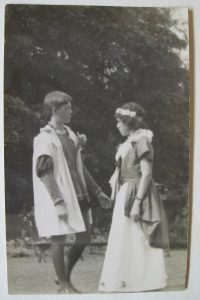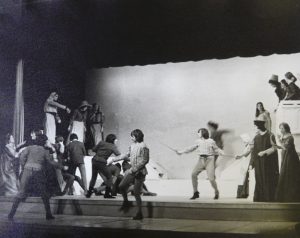Saturday 23rd April 2016 is the 400th anniversary since Shakespeare’s death.
100 years ago the school celebrated the Tercentenary Year. The July 1916 edition of Bootham magazine mentions that during the fourth week of May the school marked the event. A holiday was given on 23rd. On 24th, Mrs Liddiard gave recitations from Shakespeare in the Library. On June 1st Mr Paton, High Master of the Manchester Grammar School, gave a lecture on “Shakespeare’s Boys”.

Since then the school has performed a number of Shakespeare’s plays. The earliest recorded performance is scenes from A Winter’s Tale in 1936, which was performed on the grass in the school grounds. Over the years plays such as Richard II, A Midsummer Night’s Dream, Much Ado About Nothing and Romeo and Juliet followed. Most recently, a production of A Winter’s Tale in 2014 included live sheep!





